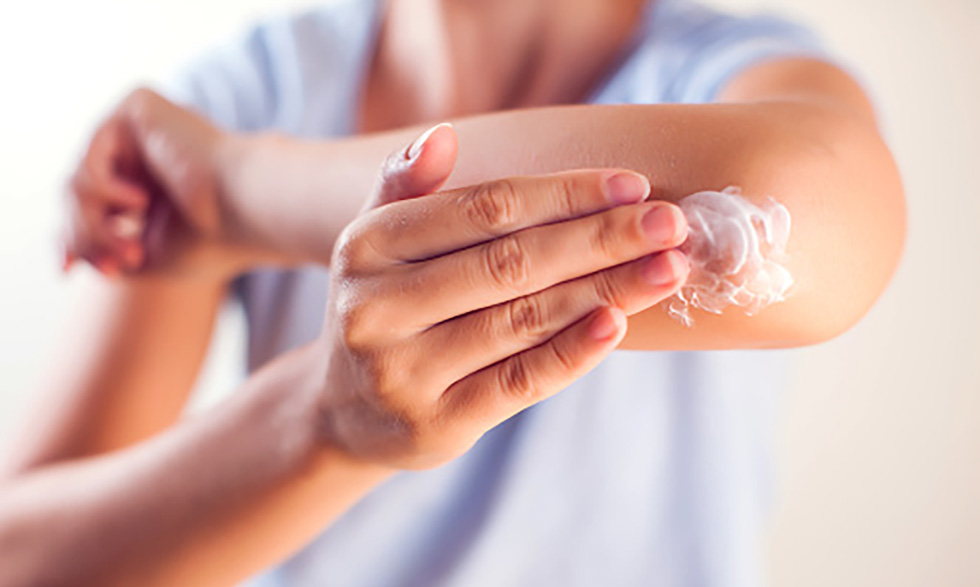Health Topics

Eczema and the cold
How to avoid flare-ups this winter
Eczema: What is it?
Eczema is a skin condition that makes your skin dry, itchy, and inflamed. It can show up as rashes, scaly patches, blisters, or infected skin. It affects about 30% of Americans, mostly children and adolescents. The most common type of eczema is atopic dermatitis.
Eczema is not contagious, but it can cause the skin to become so dry that it breaks open easily. As a result, those who have it may be more likely to get skin infections from bacteria, viruses, and fungi. Symptoms can flare unexpectedly and may need treatment. Managing eczema can be emotional for patients and caregivers.
We don’t know what exactly causes eczema, but it seems to be related to the environment, genes, and the immune system. Eczema is also often linked to allergic diseases like asthma, hay fever, and food allergies. In young children, especially babies, eczema is a major risk factor for developing food allergies, particularly peanut allergies.
If you have eczema, speak with your doctor to learn more about treatment options.
Winter and eczema
Cold, dry air and harsh wind in the winter can trigger a symptom flare-up for those with eczema. Here are some tips to help with those winter flare-ups:
- Use a humidifier
- Don’t take very hot showers
- Moisturize right after you get out of the shower—petroleum jelly or thicker creams are better
- Avoid scented lotions and laundry detergents
- Cover up as much skin as possible when going outside
- If you know you’re going to sweat, wear clothes that will dry quickly
- Avoid wearing wool, nylon, polyester, or spandex
- Ask your doctor about prescription medication to help treat stubborn symptoms
*This article was originally published on March 11, 2022. It has been updated to reflect new information.







